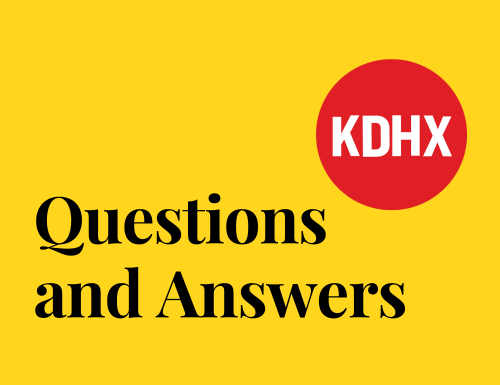
Classical Review: Beijing Guitar Duo returns to St. Louis
By George Yeh
This past Saturday night (March 24, 2024) at Washington University’s 560 Music Center, St. Louis Classical Guitar featured in its fifth concert of the 2023-2024 season the Beijing Guitar Duo, Meng Su and Yameng Wang, in their third appearance in St. Louis. The printed program featured 7 works by 6 composers, where all but one of the works were arrangements for two guitars. The concert’s first half featured music by Francophone composers, while the second half showcased two Spanish composers (of course, for a guitar recital) and one Argentine composer.
The first work was the “Prélude, fugue et variation” by the Belgian composer César Franck (1822-1890), originally composed for organ, arranged by Matanya Ophee (1932-2017). The idea of transcribing an organ work for two guitars is a curious one, since the organ can sustain notes for far longer than an acoustic guitar, besides having a far wider dynamic range. Thus, at least to me, this arrangement, however skilled and however excellent the duo’s performance was, cannot help but make the work seem more lightweight than it is, even though the organ original is quite restrained at times and far from bombastic.
The remaining two works in the concert’s first half featured arrangements by Meng Su (on the right in the above picture), of composers from France proper. The first of these two arrangements was of the “Petite Suite” of Claude Debussy (1862-1918), originally composed for piano-four hands (i.e. two pianists playing a single piano). Meng Su wryly quipped that two guitarists also use four hands and said that two guitars could potentially provide more sonic colors compared to a piano. While I may not necessarily agree with that assessment, Meng Su’s arrangement of the Debussy is very effective indeed and showcases both guitarists very well, with the main melodic line divided quite equally between the two guitar parts. The first movement, ‘En bateau’, felt perhaps slightly choppy in its long-line flow, but because the melody is so engaging and the duo’s musicianship so strong, one doesn’t really mind.
The second of Meng Su’s arrangements, to close the first half, was of the “Dolly Suite” of Gabriel Fauré (1845-1924), also originally for piano-four hands. More accurately, the duo performed 5 of its 6 movements, which Meng Su mentioned from the stage, but without identifying the omitted movement. (My guess is that the 5th movement, ‘Tendresse’, was the omission. If needed, a correction is welcome.) From what I could tell, Meng Su transposed the first movement, ‘Berceuse’ (‘Lullaby’), to a slightly different key from the piano original. Her arrangement of the Fauré is also very fine and shows a similar “egalitarian” ethos in distributing the main themes between the two guitar parts. For the Fauré, the duo used a music stand, for the only time in the concert, as the duo performed the rest of the concert from memory.
After intermission, the duo crossed the Pyrenees, so to speak, when they launched with a jolt of energy into the vigorous opening of the “Valses poéticos” of the Spanish composer Enrique Granados (1867-1916), originally composed for solo piano, featured here in an arrangement for two guitars by the contemporary German guitar duo of Christian Gruber and Peter Maklar. It’s almost impossible to imagine a classical guitar recital without music by at least one Spanish composer, and maybe something about the Spanish provenance of this work inspired the duo to cut loose a bit more compared to the first half’s selections. Yet the duo also knew to take things gently when the music dictates it, which is not all Spanish guitar-cliché razzle-dazzle. It would be interesting to learn of any Spanish guitar music originally written for two guitars, as opposed to transcriptions, apart from a wish-list idea to be mentioned later.
The next two selections were from Isaac Albéniz (1860-1909), “Bajo la Palmera” and “Castilla”, both originally for solo piano, performed in arrangements by the Barcelona-born guitarist Miguel Llobet (1878-1938). “Bajo la Palerma” is the third movement of Albéniz’s “Cantos de España”, op. 232. It was a bit of a sonic surprise to hear momentary similarities of phrase between “Bajo la Palmera” and George Gershwin’s “’S Wonderful”, although Albéniz was first, of course. “Castilla” is the seventh movement from Albéniz’s “Suite Española”, op. 47, and is the more outgoing of the two works.
The final work on the printed program, the “Tango Suite” of Astor Piazzolla (1921-1992), was the only selection originally composed for two guitars. Piazzolla wrote this work for the esteemed brother duo of Brazilian guitarists Sérgio Assad and Odair Assad. One obvious logistical advantage of a two-guitar composition is that one guitar can provide the melody while the second guitar can provide percussion, with the fingers or the palm of the hand, favorite percussive tricks used in many guitar works, more easily compared to a single guitarist trying to do both in a single work. Piazzolla duly took advantage of this situation from the very outset, with Yameng Wang providing the “percussion” at the start and Meng Su taking the main melody. They traded duties in due course during the work. The slow second movement felt a bit diffuse, and standard Piazzolla rhythmic tics and clichés showed up most notably in the final, third movement, but those are issues about the work itself, not at all about the duo’s performance. The duo’s encore was an arrangement of “Tic-Toc-Choc” by the French composer François Couperin (1668-1733), originally for harpsichord from his Third Book of “Pièces de clavecin”, the 6th Number from that volume’s 18th Order. This is a perky work with many fast notes, which the duo performed handily.
Indeed, the Beijing Guitar Duo was on excellent technical form throughout. This writer has heard the duo twice previously, once each in St. Louis and in Santa Fe. Their musical chops were then impressive and formidable, if occasionally seeming almost “too perfect”, if that makes sense. In the relatively intimate space of the 560’s Pillsbury Theater, what became more evident was their intense focus and their lack of showing-off in their playing style. This was also the first occasion where I’ve heard the duo address the audience from the stage. The audience certainly appreciated the quality of the musicianship, with very palpable focus, as no cell phones went off, with the only extraneous noises from occasional coughs and the odd object (presumably a phone) hitting the floor.
It’s a reasonable prediction that St. Louis Classical Guitar will bring back the Beijing Guitar Duo in future years. In the meantime, here’s a blue-sky suggestion for the St. Louis Symphony: book the Beijing Guitar Duo for Joaquin Rodrigo’s “Concierto Madrigal”, for two guitars and orchestra. That will probably never happen, but one can dream, after all.



